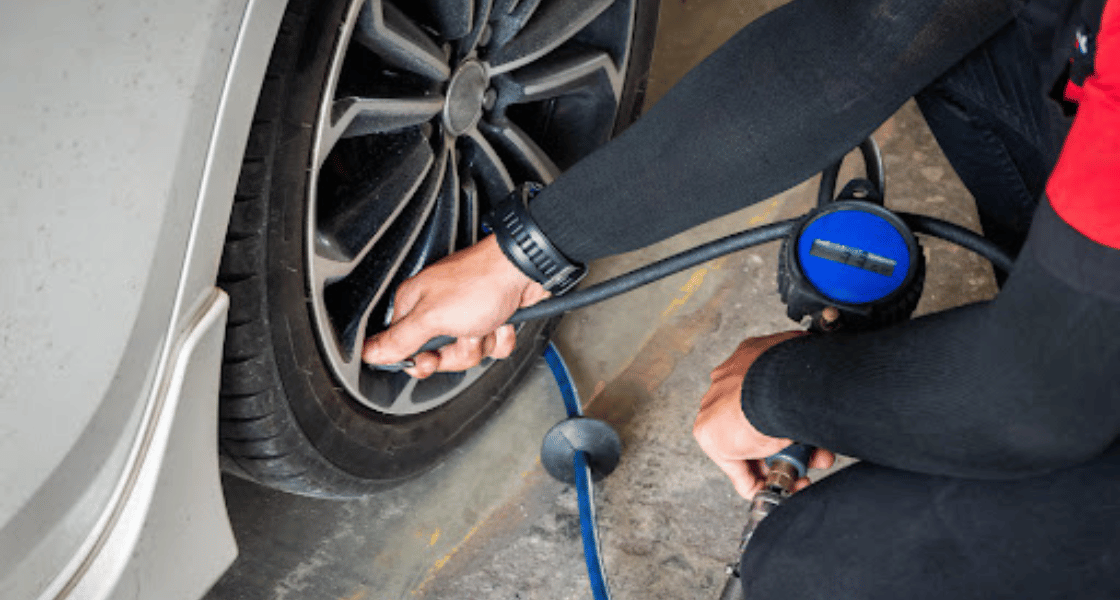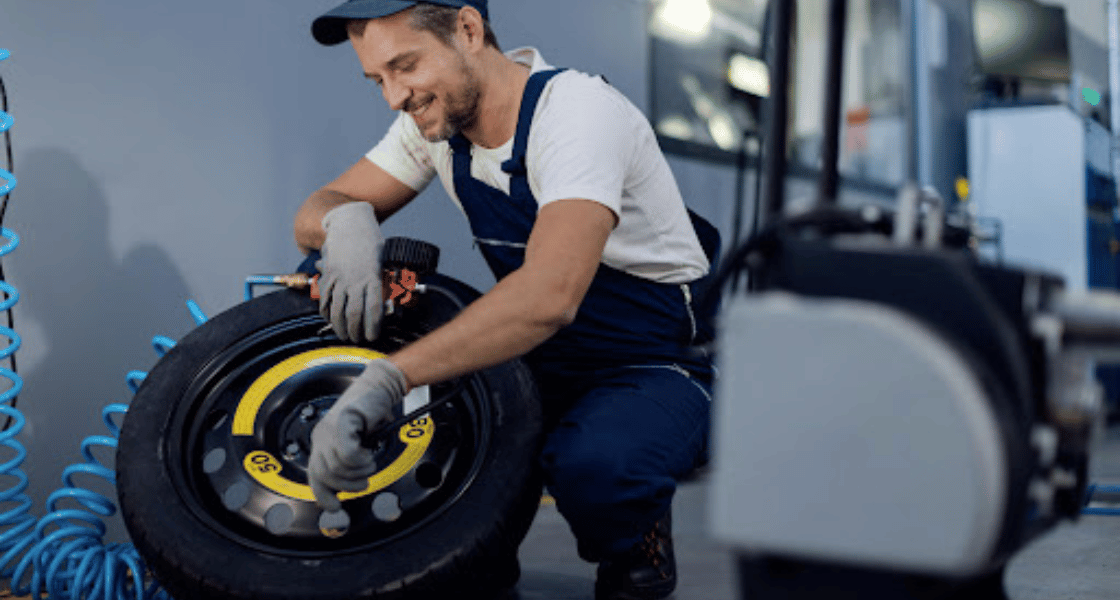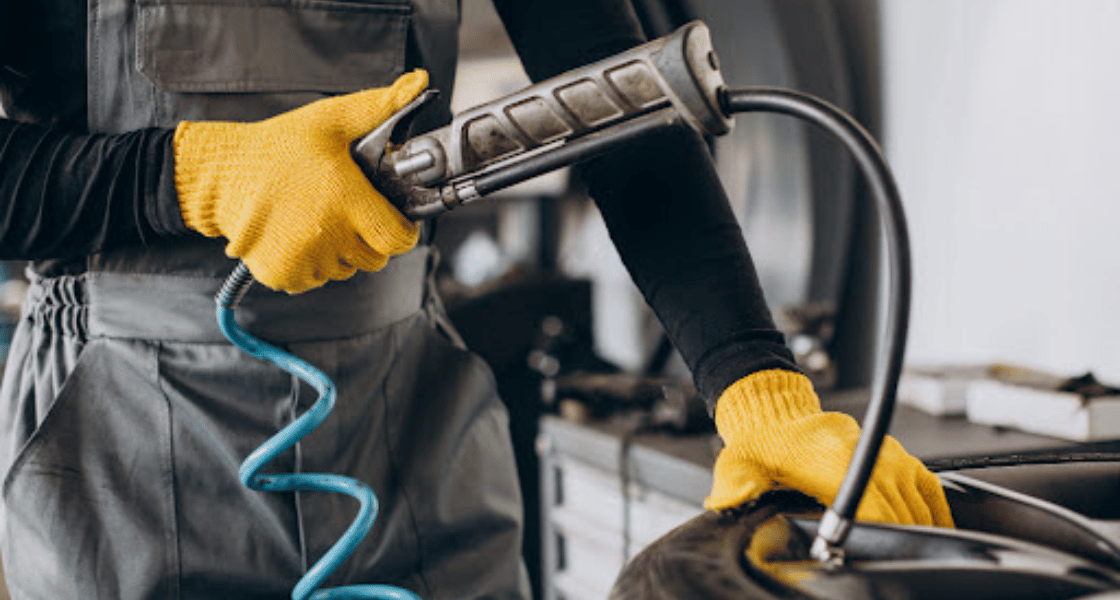Similar to how the type of gas you put into your vehicle alters its performance, the choice between nitrogen or regular air will affect your tires’ performance. While regular air is more common, nitrogen-filled tires have numerous benefits, including the ability to maintain your car’s best possible stopping distance — the key to a safe journey!
What are Tires Filled Usually With?
Tires are most frequently filled with compressed air (that is, a more pressurized version of the air which we normally breathe). It contains 78% nitrogen, roughly 21% oxygen, and the remainder is CO2, water vapor, and trace noble gases. If you were to go to a gas station and fill up your tires, compressed air is likely what you’d be putting into them.
How Does Nitrogen in Tires Differ From Air Tires?
Nitrogen-filled tires are filled with pure nitrogen instead of air using a purging process to remove as much oxygen and water vapor from the tires as possible. The result is a much higher concentration of nitrogen in the tires than in air-filled ones, providing several advantages that impact their performance.
Improved Tire Pressure and Performance
Nitrogen tires enjoy better pressure and performance by preserving adequate pressure levels!
Nitrogen molecules are larger than oxygen, reducing their permeability through the rubber. This technological perk allows nitrogen-filled tires to maintain pressure for a longer duration compared to regular tires, deflating 40% slower!
In addition to losing pressure slower, nitrogen gas improves tire pressure by resisting pressure changes due to temperature fluctuations.
Tires filled with nitrogen boast more stable internal temperatures compared to regular tires because nitrogen has a lower moisture content and does not contain other gases that expand or contract with temperature changes. This allows nitrogen tires to keep a consistent pressure regardless of the external temperature, improving the handling and performance of your vehicle.

Better Fuel Efficiency
Tires with nitrogen also offer better fuel economy!
The key to maximizing your fuel economy and gas mileage is properly inflated tires. Nitrogen tires make it effortless to maintain optimal inflation levels by resisting pressure changes. Unlike air, which leaks out of your tires more easily, nitrogen stays in the tire for longer and doesn’t require regular maintenance to keep your tires in peak shape!
Reduced Risk of Tire Failure
Nitrogen tires also reduce the risk of a tire failure or blowout.
Unlike filling your tires with compressed air, nitrogen inflation purges water from your tires, which makes it less conducive for moisture to accumulate inside your tire and lead to rust.
Blowouts are most commonly caused by improper tire pressure — either too much or too little. Since it keeps tire inflation pressure higher for longer, nitrogen reduces the risk of your tires losing pressure and blowing out.
What is Stopping Distance and Why is It Important?
Maintaining a healthy stopping distance is among the most valuable reasons to switch to nitrogen-filled tires.
Stopping distance is the combined distance a vehicle travels from the moment the driver initiates braking until it comes to a complete halt.
It consists of two crucial components: thinking distance and braking distance. Thinking distance represents the distance covered during the driver’s reaction time, while braking distance is the distance required for the vehicle to stop after applying the brakes.
Keeping a proper stopping distance enables drivers to anticipate and respond effectively to unexpected circumstances by adjusting their driving speed and maintaining a safe following distance, thus minimizing the risk of accidents.
Nitrogen Tires vs. Air Tires: Stopping Distance
A vehicle’s stopping distance is not directly affected by the type of air in its tires.
Instead, the stopping distance — as far as your vehicle’s mechanics are concerned — is largely controlled by the quality of your brakes and the pressure of your tires.
Maintaining proper inflation pressure is essential to keeping your vehicle’s stopping distance at optimal levels.

How Does Nitrogen Inflation Impact Stopping Distance?
Nitrogen tires impact stopping distance by keeping tires inflated for longer.
Tire traction is vital in stopping the vehicle when necessary, especially in wet or icy conditions. It often comes down to the quality of tire treads, which are directly impacted by tire pressure.
Properly inflated tires drastically reduce the wear and tear on their treads, enhancing your vehicle’s stopping ability at its max for longer. Unlike regular tires, which require frequent refills and pressure checks, a tire filled with nitrogen minimizes maintenance by resisting pressure loss.
Other Factors Affecting Braking Distance and Response Time
Several factors independent of your tires influence the total stopping distance.
In terms of braking distance, factors include road conditions (whether it’s slick or damaged) and car weight.
Various factors will also affect your reaction time, such as drugs and alcohol, distractedness, and tiredness. All of these factors minimize the driver’s ability to make quick judgment calls when necessary.
Get Nitrogen Tires for Safe Driving!
At Fuel and Tire Saver, we offer a nitrogen tire inflation service as a cost-effective solution for optimizing tire performance!
Our team is committed to the science behind nitrogen tire inflation and can work with you to develop a customized tire maintenance plan that meets the unique needs of your fleet.
Contact Fuel and Tire Saver and check out our resources page to learn more about our nitrogen-filled tires and how we can help keep your fleet rolling smoothly!


